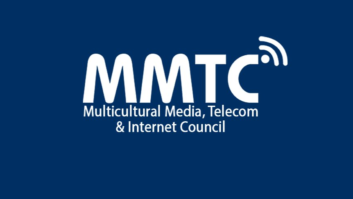 A new bill introduced in the U.S. Senate is designed to boost minority participation in the telecommunications industry.
A new bill introduced in the U.S. Senate is designed to boost minority participation in the telecommunications industry.
The NATE: Communications Infrastructure Contractors Association commends the introduction of the IMPACT Act, or the Improving Minority Participation and Careers in Telecommunications Act. The bill was introduced by Senators Kyrsten Sinema (D-Ariz.); Tim Scott (R-S.C.); and Roger Wicker (R-Miss.), who is ranking member of the Senate Committee on Commerce, Science and Transportation, in late March.
The act is designed to help address the telecommunications industry’s workforce by establishing a federal grant to promote the development of telecommunications education and job-training programs at minority institutions.
[Read: NATE Welcomes Telecom Workforce Bill]
The bill proposes to award $100 million in grants to certain institutions of higher learning to educate and train students to participate in the telecom workforce.
The entities that are principally eligible for grants under the legislation will be historically black colleges and universities (HBCU), tribal colleges and universities (TCU) and minority-serving institutions. The legislation dictates that these schools would be required to partner with members of the industry or an organization with experience providing workforce training to the telecom industry. The goal is to develop programs to ensure that students have the skills needed for the workforce.
“We are particularly excited that this is a bipartisan proposal that appropriately recognizes the critical importance of promoting educational and employment opportunities in the telecommunications field, which is so essential to the nation’s economy, competitiveness, security and vital communications capabilities,” said Todd Schlekeway, NATE president and CEO. “This legislation, if passed, can play a major role in developing a pipeline of future workers that is an integral part of NATE’s workforce development strategic plan.”
When the announcement was made, Sen. Wicker said that the bill aims to create a trained workforce to fill the thousands of vacant jobs that are needed to deploy broadband networks. Unfortunately, demand outstrips qualified candidates. “[W]e do not have a trained workforce to fill [these jobs],” Wicker said. “HBCUs and TCUs can help fill these jobs by providing career-specific opportunities for students. The IMPACT Act would support these institutions in developing telecommunications-related career building programs that will help bridge the digital divide.”
The IMPACT Act would:
- Create the Telecommunications Workforce Training Grant Program, which the NTIA would use to award $100 million in grants to HBCUs/TCUs/minority-serving institutions to develop telecommunications job-training programs that would educate and train students to participate in the telecommunications workforce;
- Require schools to apply for grants in order to partner with industry (or an organization with experience providing workforce training to the telecommunications industry) to develop these programs, to ensure students have the skills they need for the workforce;
- Allow schools to use the grants to hire and train faculty, design and develop the curriculum, pay for costs associated with instruction, fund internships and apprenticeships, and recruit and support students;
- Require schools to include a plan to increase female participation in the program;
- Require that NTIA award at least 30% of the grant funds to HBCUs and another 30% to TCUs to ensure equitable distribution of funds; and
- Require reporting to ensure schools use funds as required, that they are training students appropriately, and that students are securing employment in the telecommunications industry.











